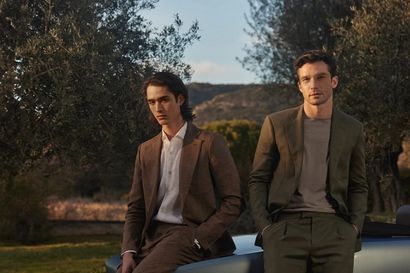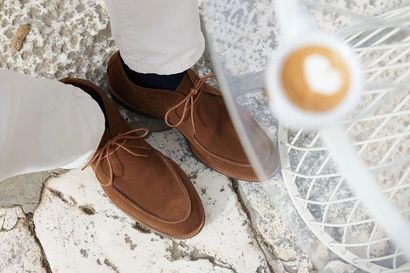The living giants of British menswear are self evident, like faces carved in a particularly well appointed Mount Rushmore – Paul Smith, Nicholas Wheeler, Jeremy Hackett, Oliver Spencer. It’s easy to forget, in fact, that each of these retail tycoons began their businesses in the most humble and grassroots of manners. Paul Smith had a tiny shop in Nottingham where he sold shirts made from factory floor off-cuts. Jeremy Hackett flogged second hand clothes bought in street markets to the great and good of the King’s Road. Oliver Spencer has a market stall on the Portobello Road.
Which got us thinking – who are the future fashion giants of this fair city? Which would-be titans are walking among us today – in the market stalls, the start up spaces, the railway arches of this town? Here are our picks for the four young pretenders to the British menswear crown.
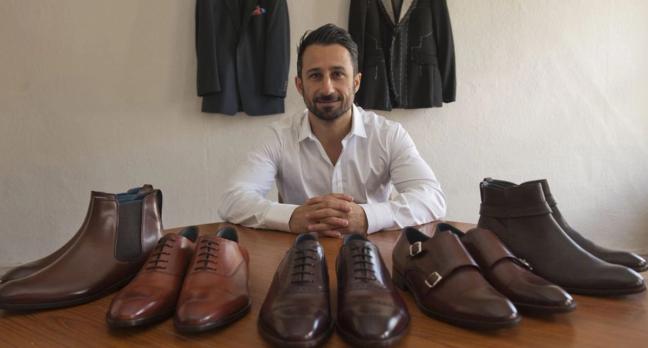
On quitting his job in the city, Sepand Oboudiyat had a pretty clear goal: make beautifully designed artisan shoes, and offer them at half the market’s going rate. The venn diagram of price to quality was simple: as good as the more established English shoemakers, at the price of a mass-produced high street offering. And though Sepand had no real experience in fashion or design, he had a very clear vision of that end product in his mind.
“I had a really strong view on what I wanted the last to look like, and that’s remained pretty much unchanged since day one.” Stylistically, Sepand describes the last as “a mid-point between English and Italian shoemaking.” His simple yet highly-refined silhouettes hit a sweet spot that the established names of Jermyn Street and Northampton often miss, he says. “People are coming to us for a more elegant and lightweight shoe. I think our proposition is very different to the traditional, much more conservative school of English shoemaking – like Loake or Church’s.”
“Our price point also puts us in a field of our own. There aren’t any other shoes of this quality at the £180 price point.” Being in a field of one’s own isn’t always a comfortable place to be (“our margins are pretty lean at that price point”, he explains). But necessity is the mother of innovation. “We’ve kept costs as low as possible with a highly curated collection of just five pairs. There’s no seasonal design work to be done, which can costs brands a huge amount of money. Instead, it’s a case of incremental improvement.”
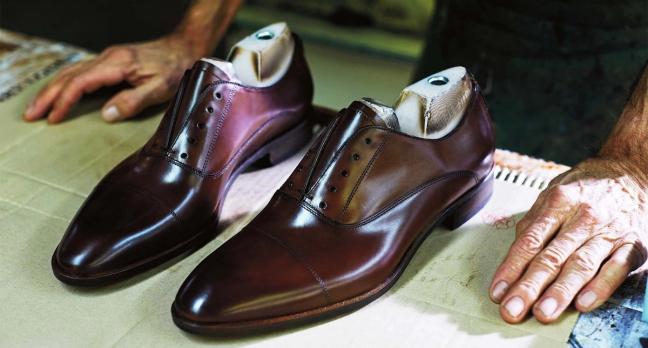
The stumbling blocks of this model, when they do arise, could be a great deal worst. “Our biggest challenge has actually been meeting our pretty large demand. We quite often sell out very quickly. It’s frustrating because the last thing we want to do is disappoint people. So our focus in the coming months is production.”
Sepand’s choice of business icon demonstrates the pragmatism that has characterised his early success. “I really looked up to Michael Preysman, the founder of Everlane, in the early days. He was a Goldman banker that decided to make a range of very high quality basics his own way. I read his piece on Entrepreneur.com and saw a lot of what we’re trying and hoping to do in his story.
As for the future, Sepand is acutely aware that the paths and fortunes of the older generation of retail kings can no longer be replicated. A steady, physical, shop-by-shop expansion is not on the agenda. “I see us sticking largely to the lean online-only model we’ve got at the moment. It’s working really well for us and our customers.” he says, “The eventual goal is to become a global shoe brand. A brand that offers the same very high quality shoes at a reasonable price point to customers all around the globe.” This is a world domination we can get behind.
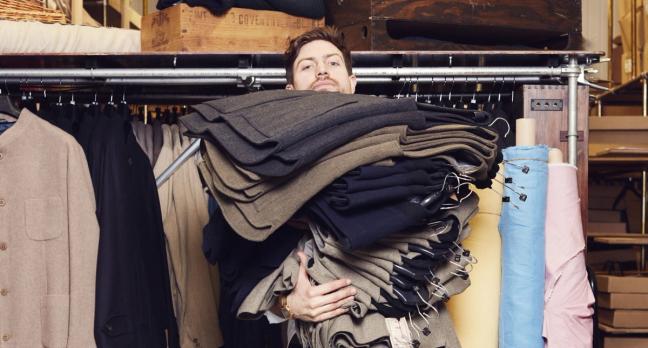
Did Paul Smith or Ralph Lauren base their fashion empires around a pun? Well, they might well have done had they struck on an idea as neat as Sir Plus. Founder Henry Hales and co take surplus (there you go) fabric – or cabbage – from Jermyn Street, Savile Row and cutting floors up and down the country, and then turn it into beautiful, playful, utterly versatile garments. But Henry’s pieces are not merely up-cycled hand-me-downs from the big boys of fashion – these are elegant and serious bits of kit in their own right; pieces, in fact, that will very often surpass in quality and style of the huge names from which their cabbage was plucked.
From a humble start (Henry’s first effort was a range of boxer shorts), Sir Plus has carved out a very healthy niche in the congested minefield of smart-casual. The brand’s tendency towards Nehru lapels has certainly helped usher in the resurgence in that stub collar style across the country, while their double-breasted formal waistcoats add a certain stately pep to the many morning suits that they now accompany. And though they’re always understated and never flashy, Henry’s garments are distinctive enough that the trained eye can spot a Sir Plus customer from across a crowded marquee at thirty paces and on a fourth Negroni. What’s more, the chap wearing it will almost certainly be a bit of a double yoker.
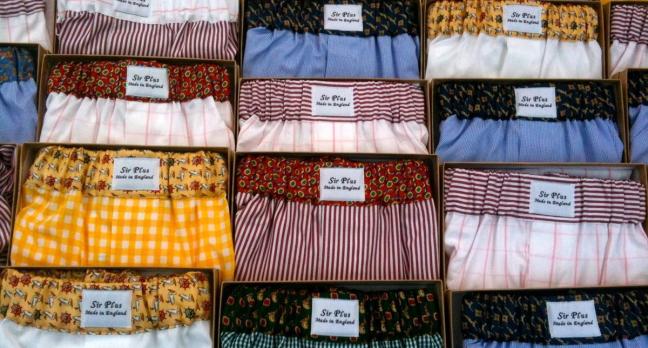
The brand’s uniquely friendly DNA can be attributed, at least in part, to the market stall at the centre of the business. Every Saturday, Henry – or an appointed general – is out with his grand, Wild West-like wagon stall on the Portobello Road, meeting and greeting the great and good of the area with a charming patter and a cart overflowing with linen and wool. “It’s the perfect mix for us really” Henry explains. The team have tried other destinations, he tells me, but nothing offers the same venn diagram of affluence, family values, established chic and up-and-coming cool. “It would be hard to replicate almost anywhere else” he says.
Unless, of course, Sir Plus gained a shop space of its own. “It would be very nice to have a couple of shops around the world.” says Henry. “In the next five years we’d love to have a presence in London, New York and perhaps Madrid.” Nevertheless, the team are wary of taking on too much square footage too soon. “Paul Smith is a hero of mine, but I don’t think we’d want to replicate his global presence” says Henry. “That kind of strategy doesn’t work as well today. There are hundreds of luxury brands across the world of all sizes trying to wriggle out of their floor spaces right now” he says. Instead, Henry hopes to grow at the same measured, almost evangelical pace, with new apostles joining the flock through word-of-mouth conversions as opposed to gaudy promotions. It will not be long before many more are seeing the light.
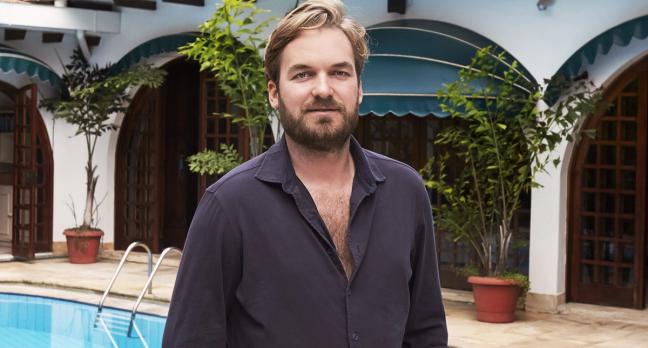
The Brazilian beachwear brand started out slightly more beach than wear. Co-founders Harry Brantly and Max Leese were playing Frescobol – a 1950’s beach racquet game invented in Rio de Janeiro – in the south of France when a few spectators complimented them on their beautiful wooden bats. So on returning to London, the pair decided to build and flog some of these traditional, hand-carved, dark wood playthings themselves. “We went into work carrying two North Face bags each, filled with beach bats that were being shipped globally. We would go in our lunch break and spend the whole weekend packing orders. It just got out of control, which is when we realised that we had to leave our jobs and do this full-time” explains Harry. The Frescobol bats were a hit. But to turn that hit into a fully-fledged album would be trickier than they thought.
“Starting out, every entrepreneur thought it was going to be easy because they had a great idea.” Says Harry. “But unless that idea was Instagram, the reality is it’s hard work. It was the intensity of this experience that came unexpected: it’s not just about putting in enough hours, it’s taken an all-in attitude to get here.”
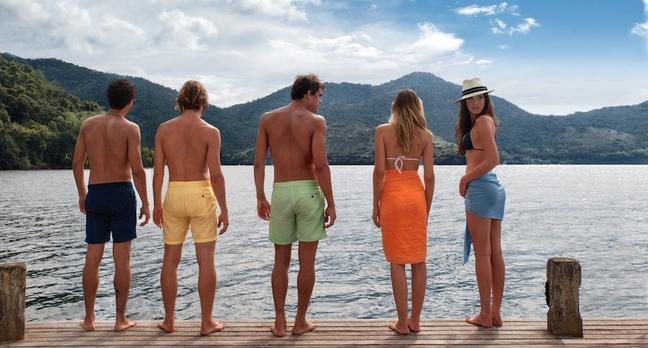
That attitude has earned the founders stores in Marylebone, Soho and Notting Hill, not to mention more than 250 international luxury stockists worldwide – including Harrods, Selfridges, Le Bon Marché and Barneys. It’s a pretty impressive haul for a company that’s only 8 years old. But Frescobol Carioca wants more.
“In the coming years we want to become a brand that can truly be considered as global, with a store presence in every major capital city” says Harry. And though the e-commerce element of their model is key to staying ahead in the digital age, it’s the old-fashioned bricks-and-mortar stores that really bring the brand to life. “Our latest store in Notting Hill has a beautiful lower ground floor space that we use for pop-ups and events, something that offers a different type of experience and value to our customers” he says.
“Of course, e-commerce will likely continue to expand at a faster pace than physical stores, and stores will become more about introducing someone to the brand and our lifestyle experience.” Says Harry. “It won’t necessarily be where a customer will buy straight away. They might love the store experience, go away, dream, research and buy online.”
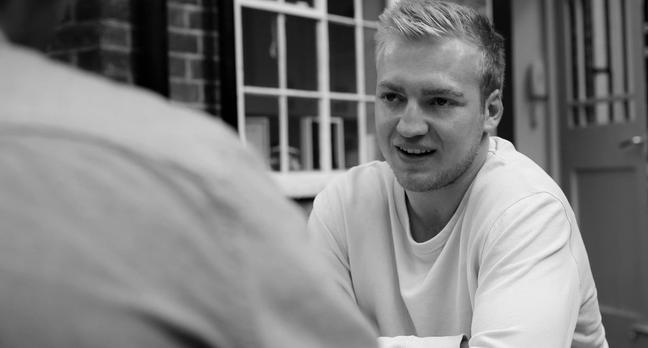
Once upon a time, slippers were only worn by the sleepy, or the almost dead, or the more eccentric members of the aristocracy on the afternoon milk run. But in the last few years, the elegant smoking shoe has undergone a renaissance, and risen up in the gentleman’s shoe rack to sit next to the snaffle bit loafer and the brogue. And that’s largely down to Duke + Dexter.
With such a previously-niche product, you’d expect the brand’s success to be moderate at best, and appeal to only a very thin seam of society – the kind of young man, perhaps, who sports unironic red trousers, gaucho belts and Fulham Lifejackets. Not so, dear chin. Instead, Duke + Dexter have defied the odds to become a global, far-reaching, genre-defying brand. Archie Hewlett, Duke + Dexter’s 23-year-old founder, has sold his slippers in more than 100 countries in just the three short years since things kicked off.
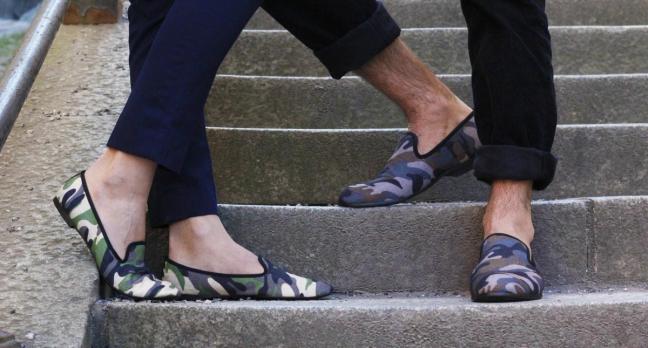
Meanwhile, the entrepreneur’s £5000 loan from his parents has now soared by an order of magnitude, with huge rumoured investment proposals and private valuations. More impressive – and perhaps more central to the brand’s success – has been its wide range of celebrity ambassadors. A watershed moment for the shoemaker came when Eddie Redmayne wore a pair of their black velvet slippers to collect his Oscar in 2015.
Since then, a smorgasbord of stars has slipped into Archie’s smoking slippers, with many of them favouring the comfort, the sleeker silhouette and the added panache that they offer over a traditional dress shoe. A fringe product, beautifully made, and marketed with verve – we’ll be hearing a lot more from Duke + Dexter yet.

Become a Gentleman’s Journal Member?
Like the Gentleman’s Journal? Why not join the Clubhouse, a special kind of private club where members receive offers and experiences from hand-picked, premium brands. You will also receive invites to exclusive events, the quarterly print magazine delivered directly to your door and your own membership card.
